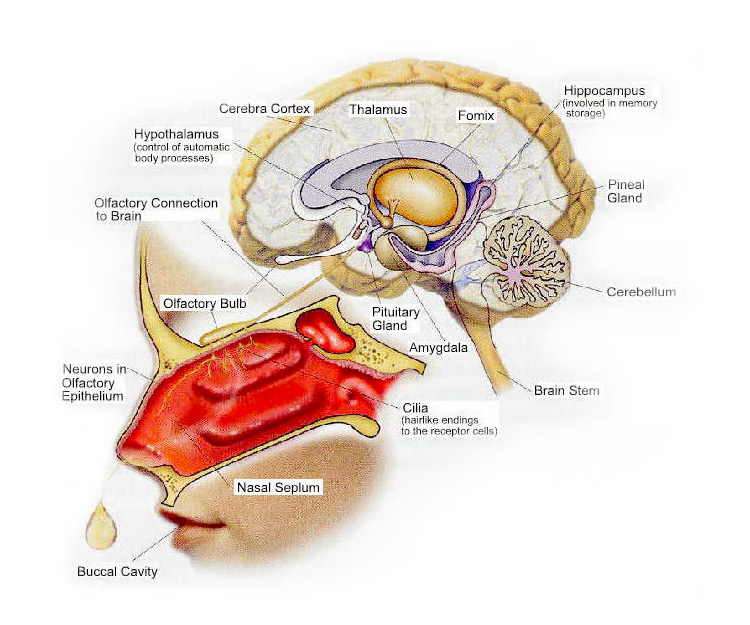Why/How it works
(The scientific stuff)
Scent can have powerful physiological and psychological effects:
- it can make us salivate
- it can change our heart rate
- it can attract us to a mate
- it can bring back powerful memories
- it can change our mood
- it can make people buy
The olfactory bulb has direct connections to two brain areas that are strongly implicated in emotion and memory: the amygdala and hippocampus.

Smell is a chemical sense tied to the emotional center of the brain, our limbic system, which plays a big part in memories and the type of emotional response that an event evokes. Scents play directly into memories due to the wiring of the olfactory system in the brain. Chemicals in the air cause firing of “sensory neurons that line the upper portion of the nasal cavity and then send impulses along their axons directly to the olfactory bulb in the brain” (Raven, 2014).
Incoming smells are first processed by the olfactory bulb, which starts inside the nose and runs along the bottom of the brain.
The olfactory bulb then connects directly to the limbic system. This structural connection can be seen in the image above. This structure in the brain is the main area where memories, emotions, and learning occur.